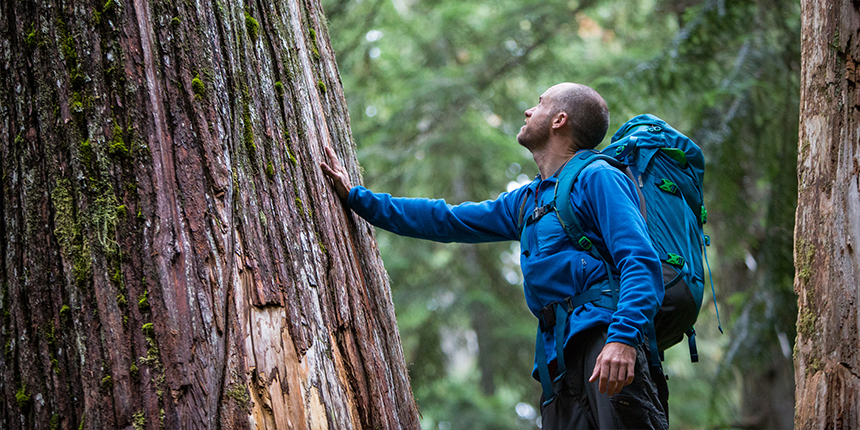Consumers are increasingly conscious of the impact of the products they purchase. While their priorities differ, some consumers have started consciously (or unconsciously) changing their purchase behavior, deciding where to shop and who to purchase from based on a brand’s social and environmental impact.
They’re also starting to pay attention to the impact that businesses have on their local communities. Are they contributing to the communities in which they operate? Are they “local” in a meaningful sense?
This trend towards conscious consumerism speaks to us on so many levels. After all, we know local inside and out—and we specialise in empowering clients to connect with their customers and audiences all the way down to the hyperlocal level. So let’s take a closer look at what’s happening here.
What is conscious consumerism?
To give it a dictionary definition, conscious consumerism is the increased awareness of the impact of one’s purchase decisions. Who am I purchasing from? What does the brand stand for? Is the company I am supporting environmentally responsible? Is it committed to social equality?

This is just a glimpse of the array of questions that conscious consumers try to find answers to before making a purchase. With this in mind, we have come to understand the importance of conscious decision-making across all kinds of consumer purchase journeys, and we have developed strategies to help brands reach and engage consumers in critical moments throughout these journeys.
The growing influence of CSR
According to a recent survey by Cone Communications, 87% of Americans will decide to purchase a product because the company supports an issue they care about. Cone also found that millennials are more likely than other demographics to research a company’s corporate social responsibility (CSR) initiatives and how it contributes to the betterment of the world.
A recent report by Shelton Group found that 86% of respondents believed companies should not only support social causes but also take a stance on social issues. In fact, 64% of respondents who think it’s extremely important for a company to take a stand on a social issue also said they were very likely to purchase a product based on that commitment.
On a related note, 64% of respondents stated that they believe companies should provide support for issues that align with the products or services they offer. A good example of this is TOMS’ One for One initiative. This is a brand that uses its products to support people in need: for every pair of shoes you buy, the brand gives away another pair to someone who needs it.
This is where a solid content strategy plays a very important role. Brands have to create meaningful, personalised, and engaging content that not only speaks to their audience’s needs but also resonates with their values. Understanding what customers want—and what’s important to them—is how businesses are best able to make meaningful connections with their customers.
Conscious consumerism across industries
While working on our white papers and conducting client-specific research, we have noticed that certain themes are becoming more prominent: CSR, sustainability, and ethical practices. Interestingly, this trend is evident across multiple verticals, from retail to quick-service restaurants (QSR) to travel and hospitality.
An investment in local communities
Through our research into digital marketing trends in the financial services sector, we found that CSR and community involvement is becoming increasingly important to financial institutions. Kelly McNeill-Sproxton, Director of Member Development at Vancity—a values-based financial co-operative—talked about the importance of understanding the local community and responding to issues that arise in the communities they serve.
She explained that Vancity supports the prosperity of small businesses, especially those who help create an economic, social, and environmental impact in their local communities: “All generations respond to messages like convenience, security, and local”, she explained. This, in turns, helps build overall brand affinity.

Again, we’re brought back to the importance of a well-thought-out content strategy that accommodates themes of CSR and sustainability. At DAC, we take a data-driven approach that bridges the gap between the brand and its customers with good content that is focused on what consumers care about. Audience research and the insights we extract from data allow us to map out the customer journey and understand how and when to communicate with customers along their purchase journey. It’s imperative for brands to understand how to integrate CSR and sustainability initiatives into their content strategies in order to drive customer acquisition and retention.
Quick service, lasting impact
Looking at the QSR space, Toast found that the top marketing channel used by restaurant industry leaders and professionals is community/event/charity sponsorship (66%). Our QSR white paper, Serving Up Consumer Insights, also found that experts are keeping an eye on CSR initiatives:
“I see kind of bubbling up right now is the idea around responsibility and giving back to the community and all those pieces of larger corporate social responsibility,” said Sara E Smith, Former Director of Marketing for Qdoba, currently Lecturer in Marketing at University of Colorado, Boulder, and founder of In Good Company.
The ugly side to beautiful garments
Let’s switch to fashion. Through countless social conversation audits, we have found that there are thousands upon thousands of negative mentions of international fast-fashion retailers—and we’re talking about huge, globally renowned brands. These brands end up with considerably negative net sentiment scores because conscious consumers are no longer willing to turn a blind eye to the negative impact fast-fashion retailers have on the world, which, according to some experts, may be “potentially catastrophic”.
Specifically, humanitarian, environmental, and social issues are the leading causes of these negative reactions. According to Forbes, for example, 2.8 million tons of clothing are sent to landfills in the US every year, where they sit for many years, releasing toxic chemicals that contaminate the soil and groundwater.
In addition to climate change, water pollution, and increasing levels of textile waste, labour standards are often non-existent in the fast-fashion industry, where labour exploitation seems to be the norm (underpaid workers, the Rana Plaza incident, child labour). For all the aforementioned reasons, some advocates have gone so far as to refer to consumers who shop at fast-fashion retailers as “unethical global citizens”. The stage is set for such brands to respond, but they have to do so in a meaningful way.
Take the road less travelled
Sustainable travel is a relatively new trend, but it is rapidly gaining traction. According to a Booking.com report, 87% of global travellers state that they want to travel sustainably, with 39% stating that they often or always manage to do so.
But “sustainable travel” can mean a number of different things. It could be travelling without harming the destination’s natural and cultural environment, supporting local businesses, or even choosing to stay at sustainable hotels—ones that are committed to sustainability through recycling, energy-efficient facilities, and locally sourced food, amongst other things.

As part of our travel and hospitality white paper, Departures, Destinations, and Disruptors, Arjun Channa, General Manager at The Westin Calgary, explained how his hotel is involved in various community initiatives, telling us that “the hotel where we operate should always be contributing to the community at large.”
As always, understanding your customers—especially local customers—is key. That’s why we conduct in-depth consumer behaviour research to understand the emotional and behavioural responses and activities associated with the purchase of products and services. This allows us to glean strategic insights that, in turn, are used to build well-rounded personas and set the foundation for effective targeting (in other words, reaching consumers at the right time with the right message).
The growing movement towards conscious consumerism has had an impact on industries across the board. So, if you haven’t already, now is the time to ask yourself: “Is my brand keeping tabs on this trend?”
Sustainability and brand value
Okay, let’s move on to the million-dollar question: does sustainability have an impact on brand value? The formula is actually fairly simple: a business can and will attract and retain customers by responding to the growing demand for sustainable products and services, which is in turn linked to financial value and growth.
Additionally, when talking about brand value, we also need to talk about brand reputation. As a brand starts investing in CSR initiatives and becoming actively involved in the local community, brand awareness and recognition increases. This has a positive impact on their reputation, which helps attract new customers and retain existing ones. That, again, translates into financial value and, in turn, brand value. It’s a great example of a virtuous circle.
Have a positive effect on your world
It’s clear that there’s a burgeoning business case for sustainability. In a world confronted by social and environmental challenges, brands have to be able to tell an authentic story of corporate social responsibility, sustainability, and environmental friendliness. Those that don’t are unlikely to attract today’s increasingly conscious—and conspicuous—consumers.
So choose a cause you care about; one that fits well with your products and services. Be an advocate. Be passionate about it. And don’t be afraid to weave it into your brand’s story and into everything you do.
Are you ready to start building a purpose-led brand? We’re here to help. Contact DAC.




